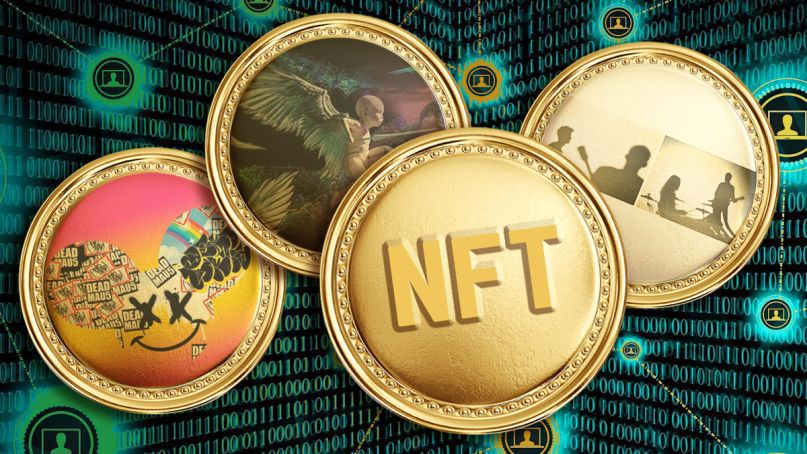Introduction
In recent years, a revolutionary concept has emerged in the digital world, transforming the way we perceive and exchange value. Non-Fungible Tokens, or NFTs, have captured the attention of investors, artists, and enthusiasts alike. These unique digital assets have disrupted traditional financial systems, opening up a whole new world of possibilities. In this article, we will explore the fascinating realm of NFTs, their impact on the future of value exchange, and the birth of a new financial ecosystem.
Understanding NFTs
NFTs are digital tokens that represent ownership or proof of authenticity of a unique item or asset, such as artwork, collectibles, music, videos, or virtual real estate. Unlike cryptocurrencies like Bitcoin or Ethereum, which are fungible and can be exchanged on a one-to-one basis, NFTs are indivisible and cannot be exchanged on a like-for-like basis. Each NFT holds distinct properties and is stored on a blockchain, typically using the Ethereum network.
The Power of Ownership and Authenticity
One of the primary advantages of NFTs is their ability to establish ownership and authenticity in the digital realm. Through the use of blockchain technology, NFTs provide a transparent and immutable record of ownership, ensuring that the true owner of a digital asset can be easily identified. This breakthrough has immense implications for artists, creators, and collectors, as it allows them to monetize and protect their work in ways previously unimaginable.
Empowering Artists and Creators
The traditional art market has often been exclusive and inaccessible to many artists. NFTs have emerged as a game-changer, enabling artists to showcase and sell their digital creations directly to a global audience without intermediaries. By tokenizing their work as NFTs, artists can retain control over their creations, earn royalties on secondary sales, and establish direct relationships with their fans. This newfound empowerment has sparked a wave of creativity and collaboration within the art community.
NFTs in the Entertainment Industry
Beyond the realm of visual arts, NFTs have also found their way into the entertainment industry. Musicians, filmmakers, and content creators are leveraging NFTs to offer unique experiences and exclusive content to their fans. NFTs can grant access to backstage passes, VIP events, limited edition merchandise, and even virtual meet-and-greets. This direct interaction between artists and fans not only strengthens the fan base but also provides new revenue streams for creators.
NFTs and Virtual Real Estate
As the world becomes increasingly digitized, virtual real estate has gained traction in the form of NFTs. Virtual worlds, such as Decentraland and Cryptovoxels, allow users to buy, sell, and build on digital land using NFTs as proof of ownership. This opens up possibilities for virtual commerce, social interactions, and immersive experiences. Brands and businesses have also started to explore virtual real estate as a means of establishing a presence in the metaverse, a fully interactive virtual universe.
NFTs and Gaming
Gaming has emerged as one of the most significant use cases for NFTs. NFTs can represent in-game items, characters, or even entire virtual worlds. Players can buy, sell, and trade these digital assets, giving them true ownership and the ability to earn real-world value from their gaming activities. This has led to the rise of play-to-earn NFT games, where gamers can monetize their skills and time invested in a game.
The Evolution of Finance and Ownership
NFTs have the potential to redefine the concept of ownership and revolutionize the financial industry. Traditional financial systems rely on centralized intermediaries to facilitate transactions and maintain records. With NFTs and blockchain technology, ownership can be securely and transparently established, removing the need for middlemen and reducing costs associated with authentication and verification.
The introduction of smart contracts, programmable agreements that automatically execute transactions when predefined conditions are met, further enhances the efficiency and security of value exchange. These smart contracts enable creators to earn royalties automatically every time their NFT is resold, ensuring ongoing revenue streams and empowering artists in ways never before possible.
Conclusion
The emergence of NFTs has ushered in a new era of value exchange and a vibrant financial ecosystem. Artists, creators, and investors are embracing the potential of NFTs to redefine ownership, democratize investment opportunities, and foster direct relationships between creators and their fans.


No comments yet